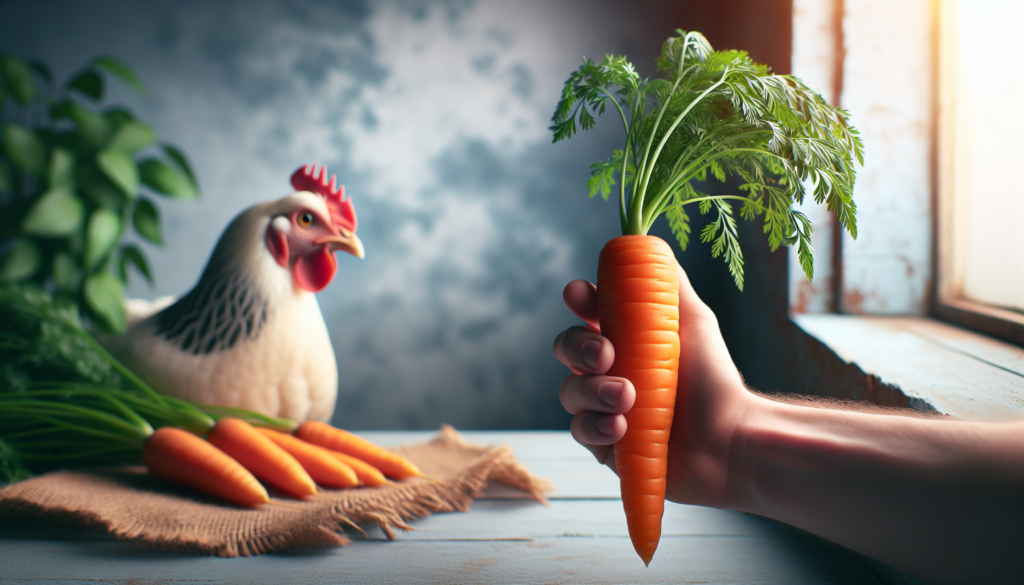In the world of backyard chickens, managing a flock can be an exciting and fulfilling experience. But when it comes to roosters, there may be some specific nutritional considerations that need to be addressed. From ensuring proper growth and development to supporting their reproductive health, a well-balanced diet is essential for these feathered creatures. So, if you’re a proud owner of roosters, it’s time to dive into the world of nutritional management and discover how to keep your roosters happy and healthy within the flock.
Feeding Roosters
Understanding Rooster Nutritional Needs
When it comes to feeding roosters, it’s important to understand their unique nutritional needs. Roosters, as active and growing birds, require a balanced and varied diet to stay healthy and thrive. As the flock leader, roosters have specific nutritional requirements that differ from those of hens. It’s crucial to meet their nutritional needs to ensure their well-being and optimal performance.
Providing a Balanced Diet
A balanced diet is essential for roosters to receive all the necessary nutrients. Their diet should include a combination of grains, protein sources, minerals, and vitamins. A good quality commercial feed formulated specifically for roosters is an excellent base for their diet. This feed typically contains a mix of grains, such as corn and wheat, ensuring a well-rounded blend of carbohydrates and fiber. Along with commercial feed, it’s important to supplement their diet with fresh fruits, vegetables, and other natural sources of nutrients.
Protein Requirements for Roosters
Protein is a vital component of a rooster’s diet, especially during the growing stage and when they are actively breeding. The protein requirement for roosters varies depending on their age, activity level, and specific breed. Generally, a rooster’s diet should consist of 16 to 20% protein. Including protein-rich sources like soybean meal, fish meal, or peas in their diet can help meet their protein needs. However, it’s important to avoid excessive protein intake, as it can lead to health issues.
Mineral and Vitamin Considerations
Roosters also require an adequate supply of minerals and vitamins to support their overall health. Calcium is of particular importance for roosters, as it helps them maintain strong bones and produce strong eggshells. Offering crushed oyster shells or adding a calcium supplement to their diet can ensure they receive enough calcium. Additionally, adequate amounts of vitamins A, D, and E are crucial for their immune system, growth, and reproductive health. Providing a well-balanced diet that includes a variety of fruits and vegetables can help fulfill their vitamin requirements.
Feeding Schedule for Roosters
Establishing a regular feeding schedule is essential for roosters. They thrive on routine, so it’s important to feed them at the same time every day. Splitting their daily feed into two or three meals can help them better digest their food. When feeding roosters, it’s important to monitor their feed intake and adjust the amount accordingly to prevent overeating. Additionally, it’s crucial to maintain a clean feeding area and remove any leftover or spoiled food promptly to promote a healthy and hygienic environment.
Water Requirements
Importance of Water for Roosters
Water is an essential component of a rooster’s diet and plays a vital role in their overall health. Roosters, like any other living creature, need water for hydration, digestion, regulating body temperature, and various physiological processes. Dehydration can have severe consequences for roosters, affecting their overall well-being and performance. Therefore, ensuring access to clean and fresh water at all times is imperative for their health and vitality.
Ensuring Access to Clean Water
Providing clean and fresh water is crucial to maintain the health of your roosters. It’s essential to prevent contamination by regularly cleaning their water containers, ensuring there are no algae or debris present. Roosters tend to drink a significant amount of water, so it’s important to monitor their water levels and refill as needed throughout the day. During colder months, it’s important to prevent the water from freezing, as roosters may struggle to access hydration during freezing temperatures.
Watering Schedule
Just like with their feeding schedule, establishing a consistent watering schedule is beneficial for roosters. Providing water at the same time every day helps them develop a routine and ensures they have access to hydration when they need it. To maintain water quality, it’s advisable to clean their water containers daily and replace the water as needed. Additionally, placing multiple water containers throughout their living area can ensure all roosters have easy access to water, especially in larger flocks.
Rooster-Specific Supplements
Supplementing Rooster Diets
Supplements can play a vital role in meeting the specific nutritional needs of roosters. While a well-balanced diet should typically provide all the necessary nutrients, certain supplements can be beneficial in certain situations. If a rooster shows signs of nutritional deficiencies or specific health concerns, supplements can help address these issues. However, it’s important to consult with a veterinarian or poultry nutrition specialist before introducing any supplements to ensure they are appropriate for your rooster’s specific needs.
Common Rooster Supplements
Some common supplements that can benefit roosters include probiotics, which promote a healthy digestive system, and omega-3 fatty acids, which are beneficial for overall health and egg quality. Electrolyte supplements can help replenish essential minerals and maintain electrolyte balance, particularly during periods of stress or extreme weather conditions. Additionally, herbal supplements like garlic or oregano can provide natural immune system support. These supplements should be used sparingly and under professional guidance to avoid over-supplementation.
Managing Rooster Health
Monitoring Body Condition
Regularly monitoring a rooster’s body condition can provide valuable insights into their overall health and nutritional status. A rooster in good health should have a well-muscled body with no excessive fat deposits. On the other hand, a visibly thin or emaciated rooster may indicate nutritional deficiencies or health issues. By visually assessing their body condition and feeling their breastbone and muscle tone, you can ensure they are receiving the appropriate amount of food and proper nutrition.
Symptoms of Nutritional Deficiencies
Nutritional deficiencies can manifest in various ways, and being aware of the common symptoms can help you identify and address any issues promptly. Common signs of nutritional deficiencies in roosters include poor feather quality, slow growth, reduced egg production, weak bones, rough skin, lethargy, and decreased appetite. If you notice any of these symptoms, it’s important to evaluate their diet and consult with a veterinarian to determine the appropriate course of action.
Consulting a Veterinarian
If you have concerns about your rooster’s nutritional needs or health, it’s always best to consult with a veterinarian who specializes in poultry care. They can provide expert advice tailored to your specific situation and conduct any necessary diagnostic tests to identify any underlying health issues. A veterinarian can also recommend appropriate dietary adjustments, supplements, or treatments to ensure your rooster’s well-being and optimize their performance in the flock.
Rooster-Behavior Concerns
Addressing Aggressive Behavior
Aggression is a common behavioral issue that may arise with roosters, especially during the breeding season or when there is competition within the flock. It’s crucial to address and manage aggressive behavior appropriately to maintain a harmonious flock. Providing sufficient space, ensuring a balanced diet, and implementing proper socialization techniques can help reduce aggression. Additionally, observing and understanding the triggers for aggressive behavior can help in resolving and preventing further incidents.
Maintaining Optimal Social Dynamics
Maintaining optimal social dynamics within your flock is essential for the well-being of both roosters and hens. It’s crucial to ensure a balanced ratio of roosters to hens to avoid excessive competition or aggression among the males. The recommended ratio is typically one rooster for every eight to ten hens. Keeping multiple roosters with a compatible temperament can also help distribute the mating and flock responsibilities, preventing excessive stress or competition.
Rooster-to-Hen Ratio
The ratio of roosters to hens is an important consideration in maintaining a harmonious flock. If there are too few hens compared to roosters, excessive mating attempts can lead to hen stress, feather loss, and potential injuries. On the other hand, an overabundance of roosters can lead to excessive aggression and fighting for dominance. Striking the right balance is crucial to ensure the welfare and reproductive success of your flock.
Rooster Environment
Providing Sufficient Space
Providing sufficient space is vital for the well-being of roosters. Overcrowding can lead to increased stress, aggression, and heightened risk of disease transmission. It’s recommended to provide a minimum of 10 square feet of space per rooster in the coop, along with spacious outdoor areas for foraging and exercise. Ensuring enough space allows roosters to establish their territories, engage in natural behaviors, and maintain a healthy social hierarchy.
Ensuring Proper Ventilation
Proper ventilation is crucial to maintain a healthy and comfortable environment for roosters. Good airflow helps control moisture levels, prevents the buildup of ammonia fumes, and reduces the risk of respiratory illnesses. Providing adequate ventilation in the coop, such as windows or vents, ensures fresh air circulation, removes odors, and helps regulate temperature. However, it’s important to balance ventilation with protection from drafts to prevent roosters from becoming too cold or stressed.
Avoiding Heat Stress
Heat stress can be particularly challenging for roosters, as they may struggle to regulate their body temperature efficiently. Providing shaded areas, adequate ventilation, and fresh water during hot weather is crucial to prevent heat stress. Additionally, offering shallow pans filled with cool water for them to stand in can provide relief. If necessary, installing misting systems or fans can help further reduce heat stress and create a comfortable environment for your roosters during scorching summer months.
Rooster’s Impact on Flock Dynamics
Rooster’s Role in the Flock
Roosters play an important role in the flock dynamics. They act as protectors, guardians, and leaders, ensuring the safety and well-being of the hens. Apart from watching for predators and sounding alarms, roosters also participate in establishing the flock’s social hierarchy. They engage in courtship displays, mating rituals, and protect their chosen harem of hens. With their watchful presence, roosters contribute to the flock’s overall behavior and create a sense of unity.
Managing Multiple Roosters
Managing multiple roosters in a flock requires careful considerations to maintain harmony and prevent excessive aggression. Introducing new roosters gradually, preferably when they are young, allows them to establish their place in the existing social hierarchy. Observing their interactions closely during the integration process is important to identify and address any signs of excessive aggression or bullying. Providing enough resources, such as food, water, and space, is crucial to prevent intense competition and maintain a peaceful coexistence among multiple roosters.
Introducing New Roosters
Quarantine Period
When introducing new roosters to an existing flock, it’s essential to implement a quarantine period. Isolating the new rooster for a few weeks before introducing them to the rest of the flock helps prevent the spread of potential diseases or parasites. During this quarantine period, the new rooster should be kept in a separate area and thoroughly monitored for any signs of illness. This practice ensures the health and safety of the existing flock and gives you time to assess the new rooster’s behavior and compatibility.
Gradual Integration
Gradual integration is key to successfully introducing a new rooster to an existing flock. It’s advisable to start by allowing visual contact between the new rooster and the other birds without physical interaction. This can be done by keeping them in separate but adjoining enclosures or using wire mesh to create a barrier. Once they become familiar with each other’s presence, supervised physical introductions can take place. Carefully observing their interactions and stepping in if aggression arises is crucial during this integration process. Monitoring their behavior closely and being patient are essential for a successful integration.
Rooster Breeds and Their Dietary Needs
Different Rooster Breeds
There are various rooster breeds available, each with its unique characteristics and specific dietary needs. Popular breeds such as Rhode Island Reds, Leghorns, and Sussex have different size and growth rates, which can affect their nutritional requirements. Each breed has its own traits and purposes, so it’s important to research and understand the specific needs of the rooster breed you are keeping. Consulting breed-specific resources or experts can provide valuable insights into their optimal diet and nutritional requirements.
Specific Nutritional Requirements
Different rooster breeds may have varying nutritional requirements based on their size, activity level, and intended purpose. Larger and more active breeds may require higher protein levels to support their growth and physical exertion. Smaller or ornamental breeds may have different dietary needs due to their smaller size or unique feather coloring requirements. Understanding the specific nutritional requirements of your chosen rooster breed can help tailor their diet for optimal health, growth, and performance.
Conclusion
Feeding and caring for roosters in a flock involves understanding their unique nutritional needs, providing a balanced diet, and ensuring access to clean water. Monitoring their health, addressing behavioral concerns, creating a suitable environment, managing flock dynamics, and introducing new roosters require attention and careful planning. By following these guidelines and seeking professional advice when needed, you can ensure the well-being and successful integration of roosters within your flock. Remember, a well-fed and content rooster contributes to a happy and thriving flock.




